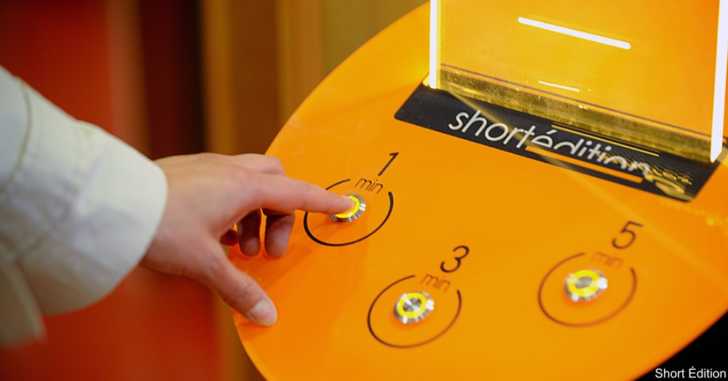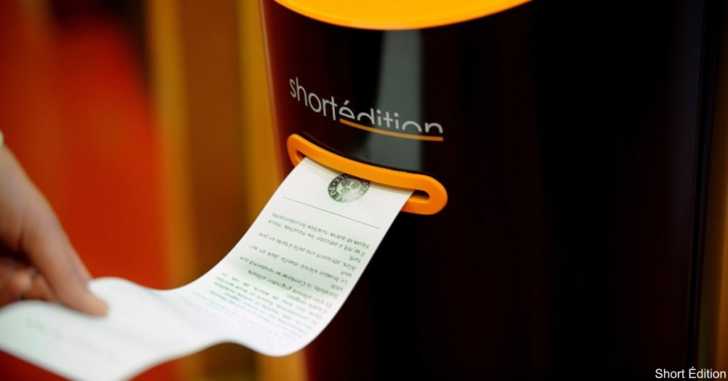Vending Machines that Print Out Short Stories Instead of Snacks
A vending machine, you ask? For books? Yes! Well, sort of.
Have you ever been waiting in line at the grocery store or sitting in the doctor’s waiting room and wished you’d brought along something to read? While the solution to this pesky problem is not very widespread just yet, it has, much to our delight, been invented. And it takes the form of a vending machine.
A vending machine, you ask? For books? Yes! Well, sort of. The vending machine doesn’t spit out actual printed books, but it does give you a long receipt-like piece of paper with a story on it. A little bit lighter and more sustainable than actual bound books, but with the same boredom-fighting reading super-powers. We think these things should be everywhere!

The company, called Short Édition, was started by Christophe Sibieude. Sibieude has added several of these lovely short-story vending machines to various public areas of Grenoble, France. And we think he’s a genius.
The short story vending machines have 600 stories, representing a range of top fiction, locked away, ready for you to print them. Each one takes one, three, or five minutes to read (you pick). The stories are chosen to appeal to a variety of ages and are appropriate for kids as well as adults.
And the best part? They’re completely free. That’s right, folks. Free. You can just walk up, press a button, and receive a random short story.
Our hope is that the invention will catch on and promote a culture of reading and learning that can eventually traverse the planet. Thank you, Mr. Sibieude, for facilitating literacy in such a fascinating way!
Now, for those of you who are more interested in food, don’t worry. Sibieude’s invention is not likely to replace actual snack vending machines. Food is still a necessity people often find themselves without when traveling or going about their day-to-day business away from home, so traditional vending machines are probably here to stay. Besides, food and stories go together admirably.

Of course, there are a couple of catches. First of all, the machines are only available in Grenoble, France, at least for the time being. And they only print stories in French. So study up.
The length of the stories may also pose an issue for some readers. Since five minutes is the maximum length of the story you can print out, it won’t take you very long to be bored again. If you’re waiting several hours somewhere, you’d need to print out a lot of stories, which we don’t really suggest. Save a few for someone else, you know?
In the interest of saving paper, we recommend re-gifting your story after you’ve read it. After all, we want this to be the type of project that will stick around for a long time and hopefully spread to the rest of the world! Perhaps Sibeude’s next invention will be some sort of recycling system for used stories.
Of course, this isn’t the only piece of technology promoting literacy in a surprising way. Check out this article on “screen-time” items that get a bad rap but may actually help children learn to read.
SKM: below-content placeholderWhizzco for CRH

